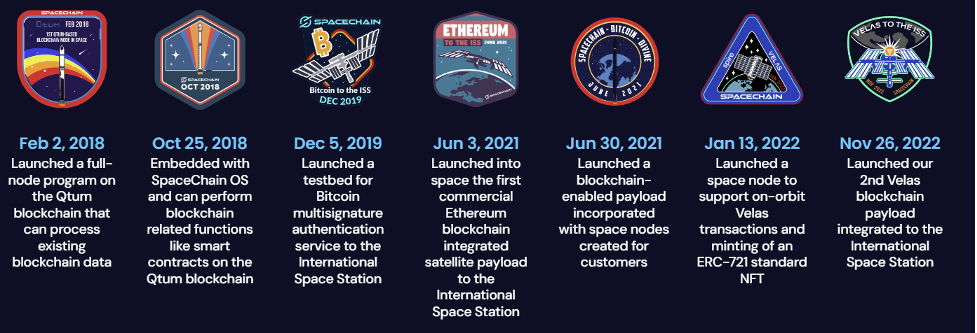
ETH to $100,000?
Posted January 18, 2024
Chris Campbell
Traditional rug producers and prayer mat makers have long had the idea of the imperfect stitch.
They would deliberately botch a stitch as a reminder that nothing in this earthly realm is perfect.
Now, in our business…
We are more futurists than rugmakers.
And though the prediction business is full of imperfect stitches, none of them are deliberate.
That said, we’ve made a lot of bold predictions in these digital leaves.
Many of them -- like the inevitability of the Bitcoin ETF -- have come true. (James even nailed the date: January 10th.)
This one’s perhaps my boldest, and futuristic, yet…
The Case for $100,000 Ethereum
Let’s begin with the basics.
Ethereum is a big decentralized computer, what author Camila Russo calls in her book of the same name “The Infinite Machine.”
It uses smart contracts to enforce trust between peers, driving out the middlemen.
Why’s this important? Middlemen tend to have their own agendas not always aligned with peers’. They often create inefficiencies and friction in the marketplace.
Thus, middlemen distort the intelligence of complex market forces.
Smart contracts automate the middleman, collapsing his undesirable complications and allowing for more complexity to unfold in human systems.
People think complexity is bad. It’s not.
Complicated is bad.
Complicated creates the environment necessary for confusion, corruption, and stupidity.
Complexity Breeds Intelligence
From a systems theory perspective, complexity in systems — characterized by numerous elements interacting in diverse and often unpredictable ways — can lead to emergent behaviors.
These behaviors are not predictable from the properties of the individual elements, a concept called synergy, implying that complexity can lead to new forms of 'intelligence' or behavior at the system level.
Every technological renaissance has brought a new level of complexity and emergent intelligence into human systems.
But to illustrate this from another angle, consider the second-most sophisticated civilization on Earth behind humans: Leafcutter ants.
Observe an individual leafcutter ant and he’s… dumb.
But put millions of these ants together and they reveal an incredibly sophisticated level of intelligence.
If you haven’t seen it in action, look it up. It’s something.
Point is…
The whole is always greater than the parts.
We humans have this supra-intelligence, too.
As Byron Reese shows in his new book, “We Are Agora,” humanity functions as a single superorganism.
The sophisticated intelligence expressed by our daily decisions, market forces, and, yes, self-interest, is beyond anything an individual (or AI) could plan for or conjure up on the fly.
When we distort that intelligence through complicated micromanagement (the sickness of bigness), we run into trouble.
Complications get in the way of this emergent intelligence.
If we are to thrive on this planet, and create a mass-prosperity machine unlike anything we’ve ever seen before…
It stands to reason that we should remove the complications and embrace the complexity.
Smart contracts are a perfect fit.
Let’s take one hypothetical futurists love to talk about: the emerging space economy.
Space Economy
By the way, a lot of people predict the space economy is coming.
(I, for one, can’t wait. There are a lot of reasons, here’s one: Manufacturing in zero-gravity will allow us to make things that are 100% impossible on Earth.)
The space economy encompasses all activities related to the exploration, exploitation, and use of space and space resources. This includes satellite communications, space tourism, asteroid mining, and potentially much more in the future.
Do you think we’re going to have a functioning space economy with our current monetary infrastructure? Not a chance. The current financial infrastructure is not fit for the networked age, and certainly not ready for the Space Age.
The space economy will involve complex logistics, global cooperation, and high-value transactions.
In an emerging space economy, reliance on intermediaries won’t just be a nuisance, they will be impossible: The high costs, logistical challenges, and time delays they introduce will be untenable.
Smart contracts can simplify these complications by providing a trustless, automated way to execute agreements.
For example, a contract for satellite repair or maintenance could be automatically executed when a satellite reaches a certain orbit. Scientific data gathered in space (e.g., from telescopes or probes) could be sold using smart contracts, which release funds to the data providers once the data is successfully transmitted and received by the purchaser.
If we can automate these things, we should. For complexity’s sake.
Could it happen? It’s possible.
Consider:
A.] The rapid advancement in both space technology and blockchain technology makes the integration more feasible. The increasing capability of satellites, deep space communication networks, and blockchain scalability solutions are converging to make this integration more practical.
B.] There are already initiatives exploring the use of blockchain and crypto in space-related activities. For instance, SpaceChain (a blockchain on Ethereum) has launched blockchain nodes into space, and other projects are considering blockchain for satellite communication and data integrity.

C.] As interest in mining asteroids and other celestial bodies for resources grows, the need for a decentralized, secure way to manage and trade these resources becomes more apparent. Crypto provides a potential solution for these transactions.
D.] Space activities inherently involve multiple international players and jurisdictions. The decentralized nature of cryptocurrencies makes them well-suited for cross-border transactions and agreements.
Ethereum is money fit for the Space Age.
Perhaps it will become my imperfect stitch…
But, the thing is, we don’t need highfalutin space economies to pull out ETH’s real potential.
Tomorrow, we’ll dig into the specifics…
And reveal why the future has never looked better for Ethereum here on Earth, too.
